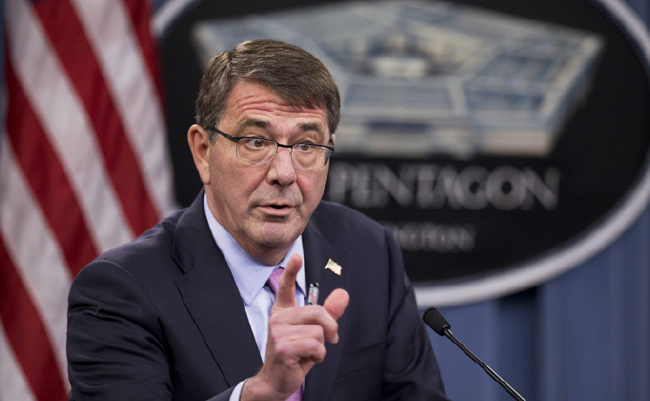BEIJING - The U.S. strategy on the Asia-Pacific under whichever administration should not be contemplated to the detriment of the interests of other countries, and any miscalculation thereof could lead to regional instability.
U.S. Defense Secretary Ash Carter, who is scheduled to step down in January, started Monday a tour in Asia that takes him to Japan and India.
The tour, which seems to reassure America's Asia allies amid anxieties caused by Donald Trump's election, also brings a big question mark over the Trump administration's future policies on the Asia-Pacific.
During U.S. President Barack Obama's nearly-eight-year tenure, Washington has shifted its foreign policy focus from the Mideast war quagmire to the Asia-Pacific, which many believe is aimed at containing a rising China.
Tensions on the Korean Peninsula have escalated after the United States decided to deploy an anti-ballistic missile system in South Korea.
The South China Sea issue emerged as a hot topic after the United States hyped the concept of "freedom of navigation" and embolden the former Philippine government to initiate a case about maritime territorial disputes with China at a ragtag international arbitral tribunal, which ran from 2013 to July 2016. Carter even boarded a U.S. aircraft carrier in the South China Sea in late 2015 to "show muscle". (Xinhua)
Home » World » U.S. Asia-Pacific Strategy Should not Jeopardize Regional Peace, Stability
U.S. Asia-Pacific Strategy Should not Jeopardize Regional Peace, Stability

